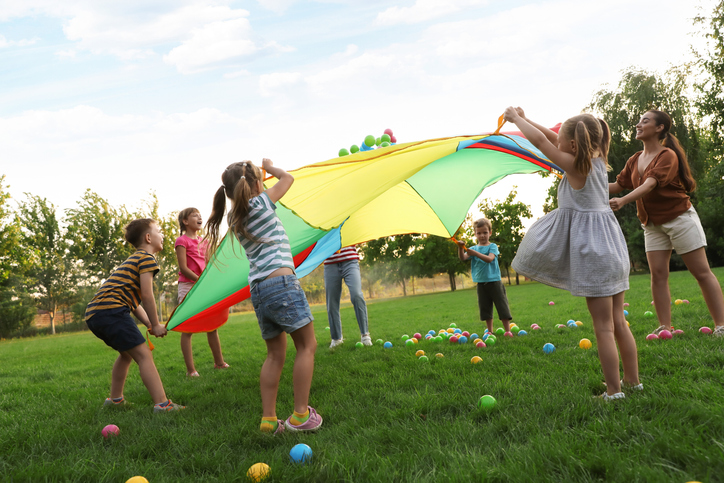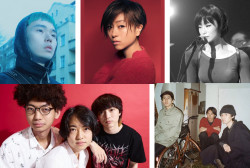
April 14, 2025
International Summer Schools in Japan for 2025
Key dates and fun options for your little ones
By Metropolis
Looking for international summer schools in Japan this summer? Japan offers a diverse array of international summer schools that provide enriching educational experiences for students from around the globe. These programs blend academic learning with cultural immersion, allowing participants to enhance their skills while exploring Japan’s unique heritage. Below is an overview of notable international summer schools in Japan for 2025:

Saint Maur International School
This summer, Saint Maur International School invites children from preschool (age 2½) up to students entering Grade 12 to join its vibrant and diverse Summer School Program, running for three weeks from June 16 to July 4, 2025, Monday through Friday. Open to both Saint Maur students and English-speaking students from other schools or visiting Japan for the summer, the program is at their centrally located Yokohama campus.
Yokohama International School (YIS) Summer Program
YIS’s 2025 summer programs are running from June 16 to June 27 at their Honmoku campus in Yokohama and are open to students from elementary school to middle school. The campus is accessible via nearby stations such as Motomachi-Chukagai on the Minatomirai Line, JR Ishikawacho, and JR Negishi.
Open to YIS Students and Non-YIS Students from other international schools
Tokyo International School (TIS) Summer Programme
TIS offers a Summer Programme for students from Kindergarten to Grade 5, featuring a blend of engaging academic courses and weekly field trips around Tokyo for Grades 1 to 5. Kindergarten students enjoy water activities on campus. The program will at the TIS campus from June 16 to July 4, accepting weekly applications. Registration for the 2025 program opens on April 1 and closes on May 8.
Open to TIS Students and Non-TIS Students from other international schools
The American School in Japan (ASIJ) Summer Day Camp
ASIJ’s Summer Day Camp provides a curriculum and environment where children can actively engage in various activities. The program emphasizes learning English songs and expressions, fostering curiosity, and encouraging communication with non-Japanese speakers. The Preschool through Grade 1 program will be in Roppongi from July 21 to August 8, broken up into three 5-day sessions. The Grade 1 through Grade 6 program will be from July 21 to August 15, splitting itself up into four 5-day sessions.
Aoba-Japan International School Summer Program
Aoba’s annual Summer School Program is held at the Hikarigaoka Campus from mid-June to August. The program offers inquiry-based learning in English, with a focus on music sessions where students can learn to play musical instruments. The application deadline is May 31 at 12 pm.
Open to both Aoba students and members of the local community, from kindergarten to high school age.
EWA Summer Camp
Hosted within the American Embassy housing compound, the EWA Summer Camp is a popular program featuring daily swimming and weekly movie sessions. The 2025 camp runs from June 16 to August 15, with general registration opening on April 15 and closing once capacity is reached.
Open to students aged 12 and under.
United School of Tokyo (UST) Summer School
UST’s Summer School program runs from June 30 to August 8 at their Tomigaya campus and offers a theme-based summer program where each week focuses on an exciting theme. Children engage in a variety of activities culminating in a field trip related to the weekly theme. With a maximum of 16 students per class, the program ensures personalized attention.
Open to students aged 3 to 12.
Laurus International School of Science Seasonal Programs
Laurus will hold STEAM (Science, Technology, Engineering, Arts, and Mathematics)-themed summer programs from June 30 to August 22, open to both Laurus and non-Laurus students. These programs aim to foster innovation and entrepreneurship among participants. Programs will be held in eight Laurus International School locations across Kanagawa and Tokyo. Sign up your little ones before May 6 for a tuition discount.
Open to Laurus and non-Laurus students aged 14 and under.
Shinagawa International School (SIS) Summer School
IS’s STEAM-themed 2025 Summer School program runs from June 30 to July 25, offering students engaging and educational activities from Monday to Friday at the Shinagawa Seaside Campus. This year, we are thrilled to present an immersive STEAM (Science, Technology, Engineering, Arts, and Mathematics) experience designed to spark creativity, critical thinking, and collaboration. From robotics and coding to art and scientific discovery, students will dive into hands-on projects that inspire curiosity and a love of learning. Join us for a summer of discovery and inspiration!
Open to students in preschool to grade 5.
Seisen International School Summer School
Seisen’s comprehensive Summer School Program is scheduled from June 9 to June 27, 2025, with an application deadline of April 30. This 3-week program is designed to offer students a wide variety of options to enhance their learning through language arts, sports, arts, mathematics, science, technology, and experiential learning. Aligned with our philosophy of “Learning to Love, Loving to Learn,” the program supports students in developing the skills they need to become successful, independent learners.
Open to both Seisen and non-Seisen students, with applications for non-Seinen students open for Grades 2–12
Canadian International School (CIS) Summer School
CIS offers summer classes focusing on English language development through enjoyable activities, games, and events. The curriculum is designed to enhance skills in speaking, writing, reading, and listening, incorporating aspects of the Canadian elementary curriculum. The first session will be held from June 30 to July 18, and the second session will be held from July 21 to August 1. Applications are not open yet, but stay up to date with the CIS website for further information.
Open to CIS and non-CIS students from kindergarten to grade 8.
Nishimachi International School Summer Programs
Nishimachi’s summer programs run from June 16 to August 8 across two unique locations—our central Tokyo campus (Motoazabu Campus) and Camp Kazuno in Gunma. Offerings include creative day camps, tech adventures, enrichment workshops, and overnight leadership experiences. In partnership with activity partners throughout the summer, students explore STEM, nature, and global skills in a safe, engaging environment.
Programs are open to students from Pre-K to Grade 9.
Non-Nishimachi students are welcome.
International School of the Sacred Heart Summer School
The Sacred Heart Hiroo Campus will host this two-week program from June 16 to June 27, and the application deadline is April 28. Week one, “Move It: Motion for Mind and Body,” focuses on how movement enhances learning through fun, active experiences. Week two, “Epic Explorers,” invites students on a journey of discovery and adventure, encouraging teamwork, curiosity, and creative problem-solving.
Open to Sacred Heart students or other international school students from kindergarten to grade 8.
St. Mary’s International School Summer School
St. Mary’s offers a summer school program full of learning opportunities and fun. The 15-day program runs from June 9 to June 27, featuring a variety of courses across all grade levels, including exciting new options. The application deadline is May 2.
Open to students aged 5 and up.
Whether you’re seeking a STEM-focused experience, a language immersion program or a classic summer camp filled with creative and active fun, Japan’s international summer schools offer something for every student. For application details, tuition and specific offerings, visit the schools’ official websites linked above.
Never miss a community update.
Get the latest articles, events, and announcements delivered straight to your inbox.
Sign up for our newsletter today!







